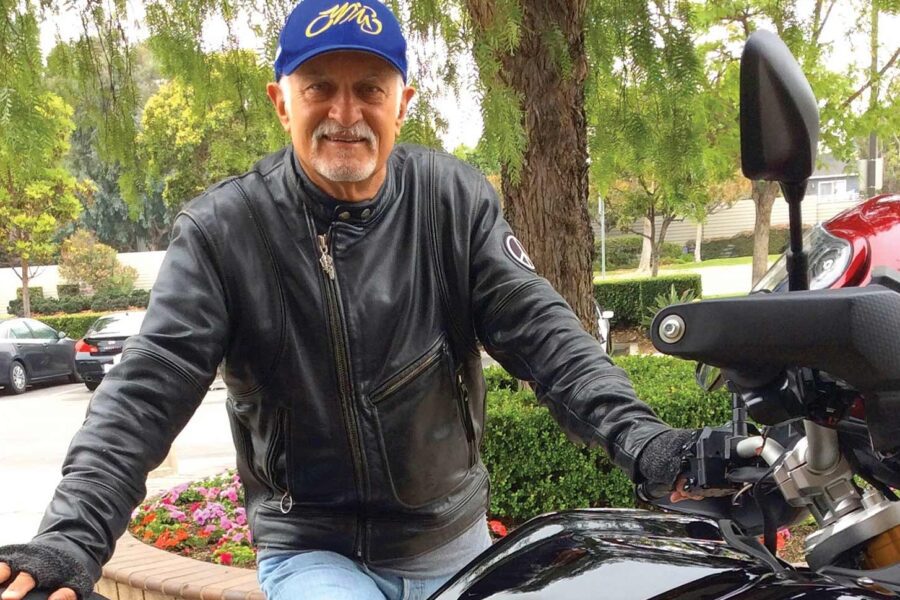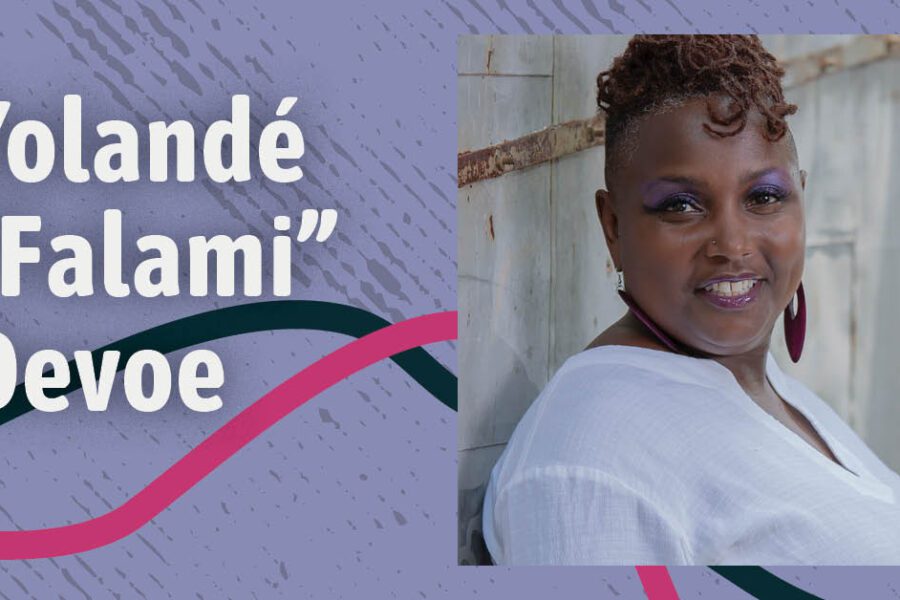Everything I do is truly collaborative work,” says Tracy Rector ’06 (Antioch Seattle, MA in Education), a storyteller who has directed and produced over 400 short films and five feature documentaries. Rector explains that “it’s really central to my personal philosophy as an artist and activist: amplifying other voices, opening doors and bringing people through those doors, and always sharing opportunities.” The result of collaborations like these, which often involve working alongside Indigenous storytellers—Rector herself is of mixed Black, Choctaw, Jewish, Scottish, French, and Irish ancestry—are stories that weave together community and sometimes hold the potential to bring about transformation.
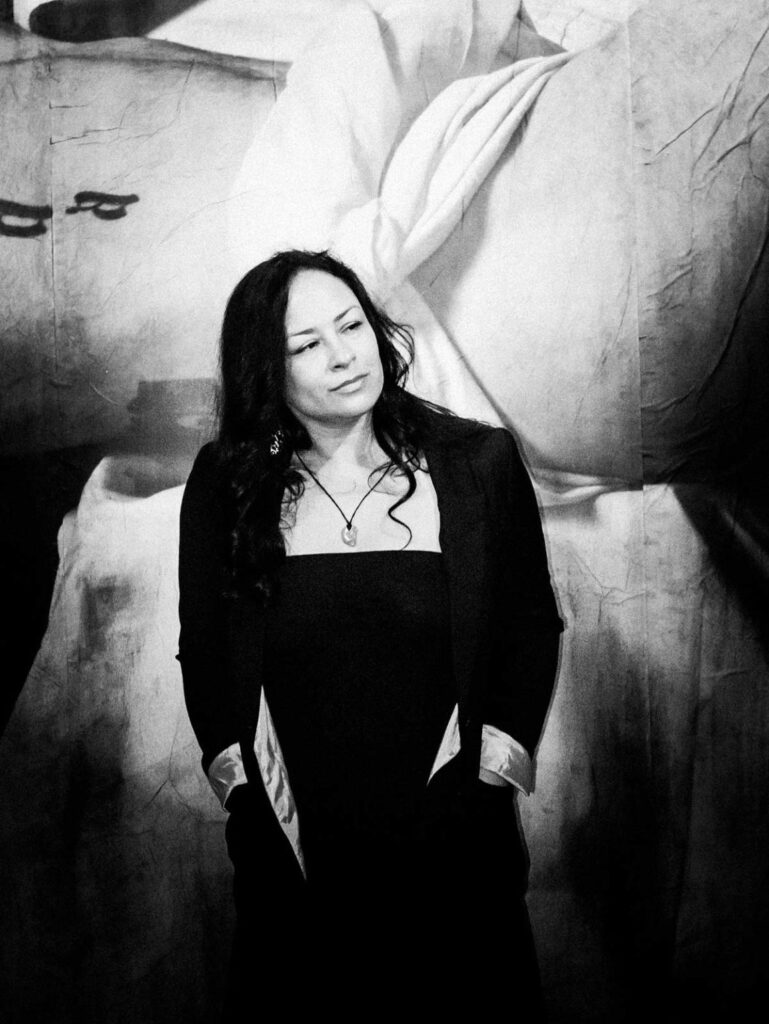
For instance, Rector recently executive produced a short documentary about logging in Solomon Islands. In this archipelago nation east of Papua New Guinea, clear-cutting of tropical hardwoods is an ongoing environmental and human tragedy. As foreign forestry companies built to mine raw timber export both the wood and the profits, the highland’s clay-rich soil, no longer held firm by the trees’ roots, runs off during rainstorms, making local waters undrinkable and burying lowland crops. But to see this as primarily an environmental story, as recent pieces in National Geographic and the Asia Times have done, is to miss the deeper meaning of these forests.
“For the people there, who are Indigenous, the high elevation forests and clouds are sacred,” says Rector. “Those forests hold the spirits of the ancestors, the medicines, the knowledge.” Rector, in her role as Managing Director of Storytelling at Nia Tero, has been supporting her colleagues in helping a group of nine Indigenous Solomon Island filmmakers direct a documentary short about this story. The finished film, Sky Aelans, records the voices and point of view of Solomon Islanders. It is by and of them.
This film has become a tool for advocacy. “The film has been shown throughout the world at film festivals, it’s been seen as part of UN convenings, and it’s helped bring awareness to the need and the impacts of logging,” says Rector. The film has even played a role in bringing change in Solomon Islands. “On a governmental level, it’s created an awareness to establish pledges and rules governing the rate of logging in the region.”
The model here of working alongside and in support of Indigenous peoples who are protecting their lands is central to Rector’s work as the Managing Director of Storytelling at Nia Tero, a Seattle-based nonprofit. In this position, which she has held for the last year, Rector oversees original content, media production, creative fellowships, communications, and their storytelling grantmaking. She has also been initiating projects such as a new podcast, a new column in the South Seattle Emerald, and a drive-in movie project of Indigenous-made films. It’s a big job, demanding twelve hours of Rector’s days. But that doesn’t stop her from continuing her work as founder and collective member of Indigenous Showcase, as a Seattle Arts Commissioner, as a curator of the yəhaw’ project, and as an independent filmmaker. She is also an activist involved in the Black Lives Matter movement, the Defund Police movement, and voter education.
Always Have a Plan B, C, and D
Rector attributes her ability to accomplish so much to her upbringing. “I know that that is one of the greatest gifts that my late father engendered in myself and my brothers: just knowing how to get to it and work hard.” It’s a trait that has helped her thrive in an arts world that is not always easy, or well-funded. She says of her drive, which some might call workaholism, “I think that’s the biggest difference in what I am able to produce and achieve. There’s passion and skill, but I think truly that it’s the unrelenting work ethic that takes what I do to the next level.”
Rector also says that her education in Antioch Seattle’s Master’s of Education program helped prepare her for this career. “I think that having a degree in education has allowed me to exercise and understand the importance of always being a student and continual learner myself,” she says. “And that’s allowed me to shift and adapt but also be more creative.”
It gave her a more tangible skill, too: “It’s taught me to always have a plan B, C, and D. I just remember that from curriculum development, that things will change and you always need to have a backup plan. I think that’s been one of the greatest life lessons ever.”
Making the Greatest Impact
When Rector enrolled in Antioch’s dual teacher certification and Master’s of Education program, she initially thought that she would become a classroom teacher. She studied under the guidance of Dr. Wendy Rosen on the campus of Muckleshoot Tribal College, in a program designed specifically for those planning on working in tribal communities.
By the time she graduated from what she has called “the best educational experience that I’ve ever had” Rector realized that she could “better serve Native communities through access to digital media and storytelling. And with that, I knew that I would not be in the classroom.”
This led to the founding of Longhouse Media and Indigenous Showcase. Rector’s early focus was on empowering Indigenous youth with film production equipment and knowledge so that they could tell their own stories. Since then, Longhouse Media has trained over 3,000 young people. That mission has continued while productions in recent years have included a collaboration with the Smithsonian to tell the stories of Native servicemembers and a collaboration with the Seattle Foundation and King County Elections called iVote, encouraging Indigenous people to vote.
yəhaw’
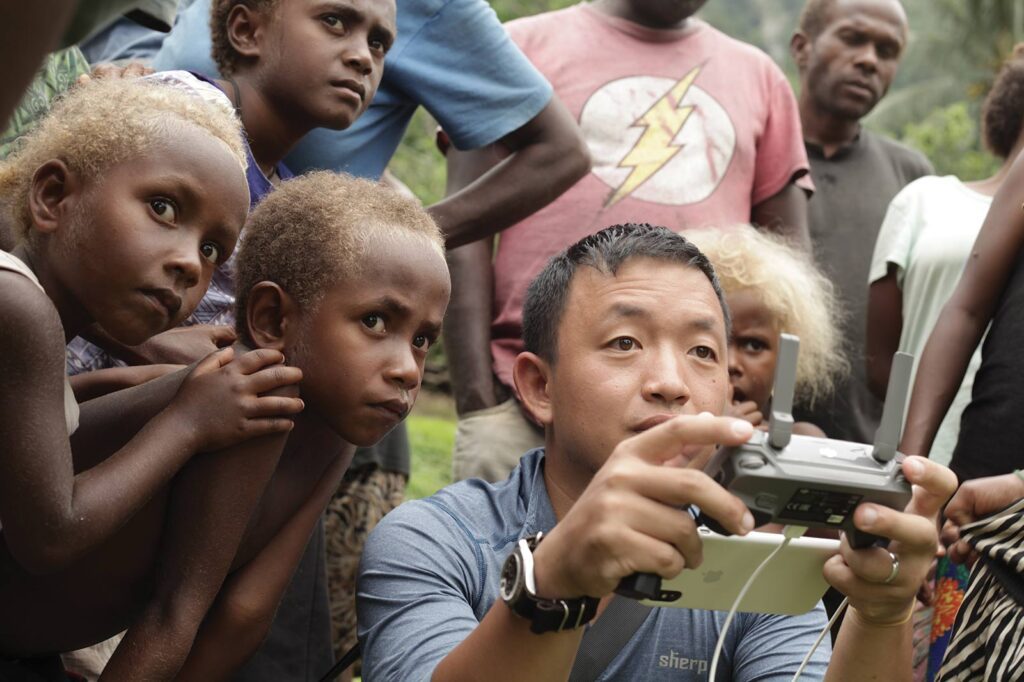
Four years ago Rector, together with Asia Tail and Satpreet Kahlon, started yəhaw’, a project curating the work and performances of Indigenous artists across Coast Salish territories with an emphasis on those of women, Two Spirit, and young people. This culminated last spring and summer in a public exhibition at Seattle’s King Street Station.
yəhaw’—roughly pronounced “yuh-how,” with the emphasis on the second syllable—is a Lushootseed word that means “to proceed, go forward, do the work.” So it was fitting that yəhaw’ the project did not in fact end after its big “culminating” show. Instead, explains Rector, “we realized that [it was] functioning as a great medium for amplifying and uplifting Indigenous artists in general, and so we’ve maintained a monthly newsletter and a website with a gallery for people to connect with Indigenous artists.” This has extended into supporting campaigns for grants for artist relief during COVID and connecting individual artists with creative opportunities.
Dawnland
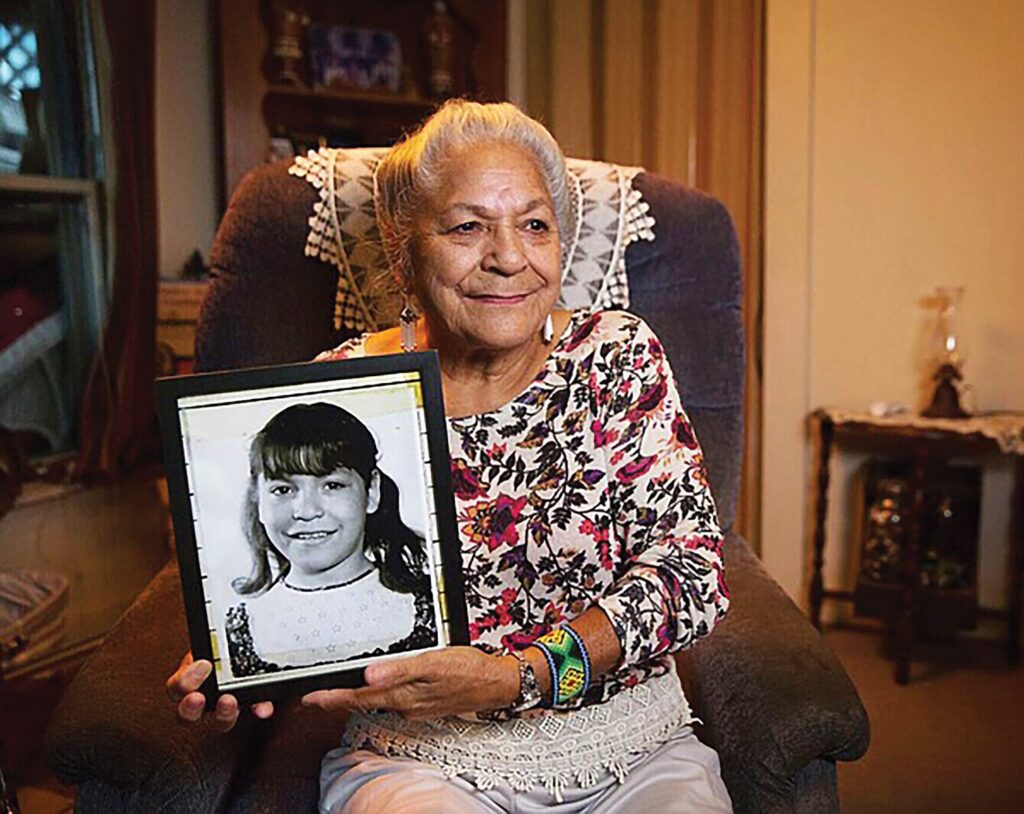
Another project Rector has helped shepherd into the world is the documentary Dawnland, which tells the story of child removal policies that forcibly removed Native American children from their parents, shattering homes and erasing culture. The film tells this story while chronicling Maine’s first-of-its-kind official Truth and Reconciliation Commission to reckon with this past.
Rector served as an impact producer for Dawnland, focusing on how the film would find its audiences, help change discourse, and be integrated into school curricula.
Last September, Dawnland won an Emmy award for Outstanding Research. Says Rector, that “was especially great in this era when truth-telling is so essential.”
“There’s passion and skill, but I think truly that it’s the unrelenting work ethic that takes what I do to the next level.”
– Tracy Rector
Outta the Muck
A project that will be completing next year is Outta the Muck, a feature-length documentary for which Rector is the lead producer. It tells the story of the residents of Pahokee, Florida—a town of 4,000 people that has produced more than 40 NFL players and even more college football players.
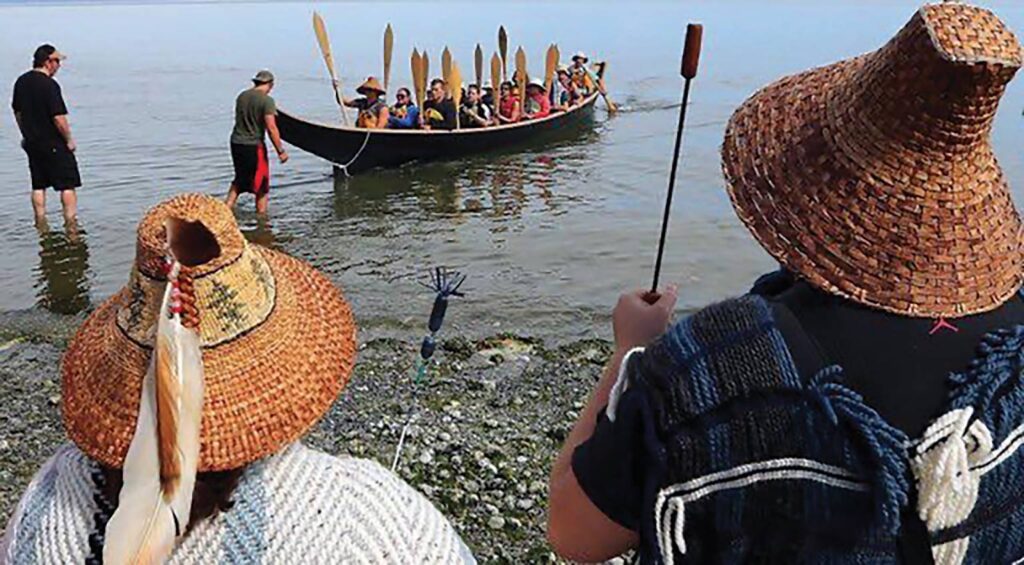
This story, says Rector, “is exciting for me especially because as a multiracial artist [it’s exciting] to be part of a Black story that’s truly rooted in community.” It follows the evolution of one family that has lived in Pahokee across six generations, and they are a kind of microcosm for the whole town’s history to tell what Rector describes as “a story about resilience, sustainability, Black joy, family commitment, living off the land, and adapting to a harsh but beautiful environment. That’s been one theory as to why there’s so many amazing football players that come out of this place. It’s just hot. People have to really know how to endure in extreme conditions. And it makes for incredible athletes.”
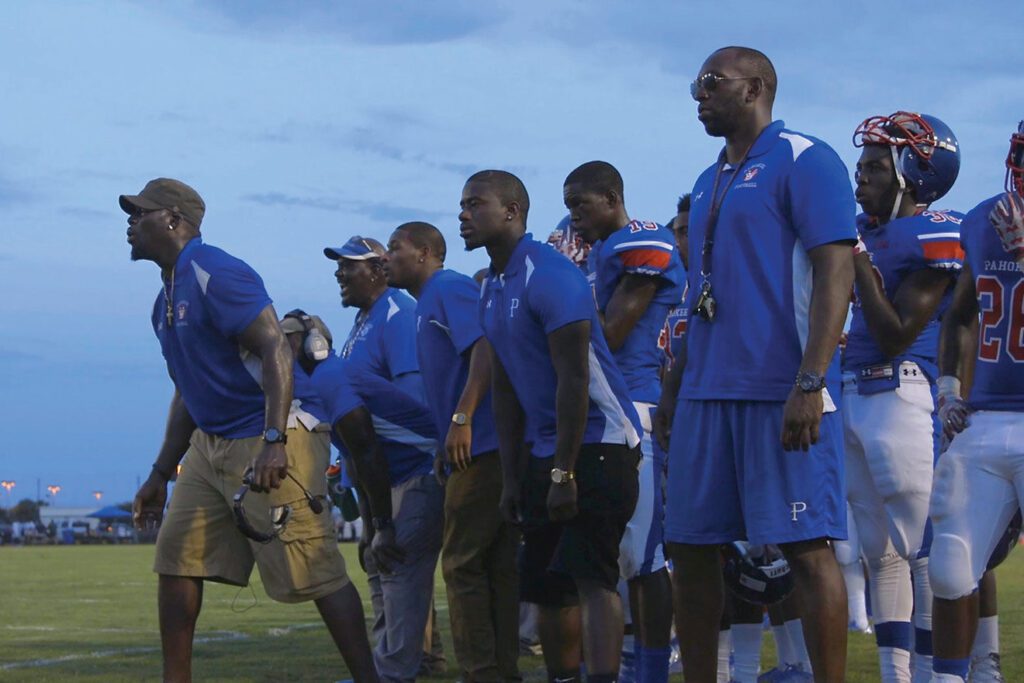
One of Rector’s favorite things about this film, though, is helping the directors tell their story. “One of the directors, Ira McKinley, Pahokee is his home community,” she explains. “It’s been really humbling and powerful to support his voice as an authentic storyteller from the region.”
This might be the through-line of all Rector’s projects: a deep commitment to collaboration, and to helping others bring their stories out into the world. From Solomon Islanders making a film about their imperiled forests to a Floridian’s tale of poverty, grit, and the NFL, Rector is supporting voices and helping tell stories— stories that today, more than ever, need telling.


